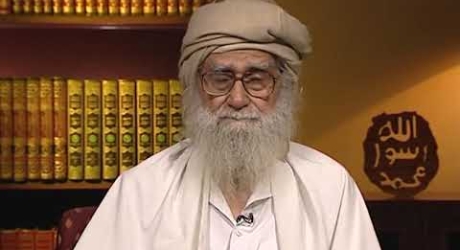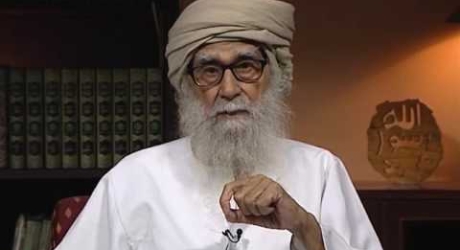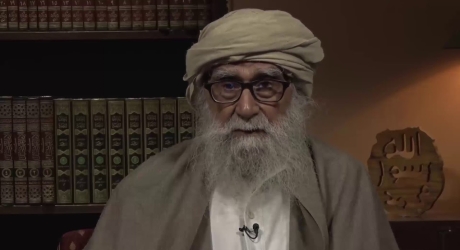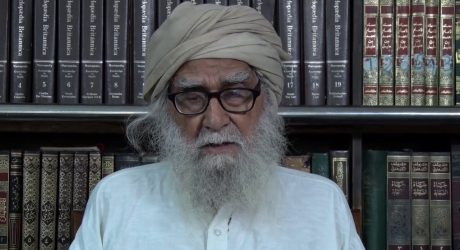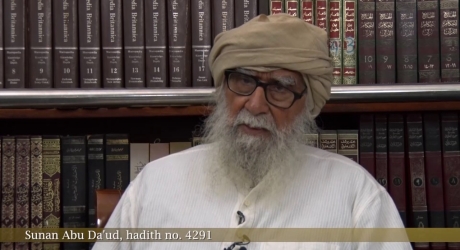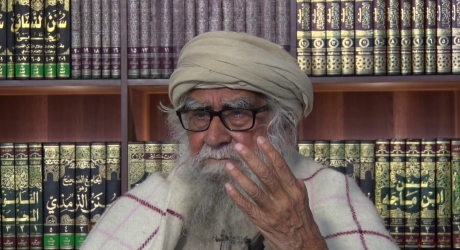What are the dictates of God? These are preserved in the sources of Islam: the Quran and the Sunnah. Both the Quran and Sunnah were transmitted to us through the last Messenger of God, Muhammad bin Abdullah. The Quran is no new heavenly scripture. It is only an original edition of the previous heavenly scriptures. In this respect, the Quran is a book for all human beings of all nations. It is the expression of God’s mercy for one and all. It is a comprehensive message sent by God to each one of us. The Quran is a light of guidance for the world, just as the sun is the source of light and heat. The Sunnah can be described as the sayings and the actions of the last prophet of God: Prophet Muhammad. Through the Sunnah, we obtain examples from the life of the Prophet, who is a model for a believer. Whatever the Prophet did, said, or approved of is a source of Islam, just as the Quran. The Prophet’s role is not overemphasized: his life was dictated by what the Creator desired, and the Messenger did not add or subtract to Islam according to his whim.
Introduction
Quran is the preserved Word of God and Sunnah is the record of the life and times of Prophet Muhammad. Both are crucial as they make man aware about the purpose of his existence and acquaint him with the Creation Plan of God.
Why did earlier scriptures not remain preserved?
God sent His messengers in every age but the message did not remain preserved, succumbing either to human interpolations or misplacement. As man repeatedly failed to ensure the preservation of His Message, God ordained final prophethood upon Muhammad and revealed unto him, the Quran. This time God Himself vowed to preserve His Word. Affirming the veracity of Quran being the preserved Word, God says in Quran:
“This is the Book, there is no doubt in it” (2:2)
Guidebook and a Model Example
God wanted man to receive guidance. He therefore sent him a guidebook in the form of the Quran and a model in the form of the Prophet Muhammad. According to the Quran,
“You have indeed in the Prophet of God, a good example. (33:21)
“ For you (Muhammad) are truly of a sublime character.” (68:4)
God so ordained because both the Quran and Hadith are essential for providing guidance to man. Ignorant of this fact, some sects (like the Khwaraj group) consider the Quran to be the sole source of guidance and do not attribute any status to the Hadith. This notion is entirely wrong. It is a fitna, which is thought to have emerged at the time of Caliph Ali but in reality, it originated recently. It is imperative to understand that while the Quran lays down guiding principles for man, it is the Hadith which outlines the practical application of these principles. Failure to follow any of these two, would lead man into darkness. The following illustration aptly explains how the Quran and Hadith complement each other.
Illustration
A verse in the Quran says,
“Believers, remember God often (Zikr-e-kaseer).” (33:41)
In this verse, the term ‘Zikr-e-kaseer’, refers to the remembrance of God. Muslims misinterpreted the meaning of this verse and quantified it in terms of the number of times the name of God was to be invoked. Some even went to the extent of claiming that the heartbeat should be trained such that every beat corresponds to divine invocation. Such a definition is highly preposterous and reflects a grave misunderstanding of the Creation Plan of God.
In an attempt to understand this Quranic verse, let us reflect upon the following Hadith:
“Prophet remembered God on all occasions.” (Bukhari)
Aptly explaining the meaning of the abovementioned verse of the Quran, this Hadith states that man faces numerous situations in life. Like the Prophet Muhammad, one must make every situation in life, a point of reference to remember God. Such remembrance would amount to discovering one’s own helplessness before the all-powerful God. It would make one discover God’s greatness through his astounding creations and realize one’s nothing-ness in comparison.
The relation between the Quran and Hadith can only be understood after deeply contemplating over the subject. Those who do not devote themselves to such deep thought, falsely claim that the Hadith bears no link with the Quran. They fail to comprehend that alone guiding principles do not suffice; their effective realization demands that they are understood along with the practical example of the Prophet.
The conscious mind
God divided man’s mind into two parts - conscious and unconscious. The unconscious mind controls all the vital functions of our body like digestion, respiration etc. necessary for sustaining man’s existence.
The conscious mind has been left free by God so that man can think about his Creator and attain God-realisation. While on one side, nature sustains the life support system and provides the vital oxygen, sunlight etc., our unconscious mind on the other, regulates the internal processes.
The conscious mind does not have to perform any of these tasks. It has been left free to think and discover the truth. Man must therefore strive to activate his thinking for only then can he understand the deeper facets of life. Emphasising the importance of developing the intellect, the Quran says,
“The worst creatures in God’s eyes are those who are deaf and dumb,
and who possess no understanding.” (8:22)
According to a Hadith,
“God created reason and said this is My best creation. And then addressing reason,
God said, ‘Through you, I will be discovered, through you, I will be acknowledged.’”
(Kanzul Ummal)
The reason (or the conscious mind) only needs to strive to recognize the glory of God and thank Him for His innumerable blessings. The Quran says,
“I created the jinn and man only so that they might worship Me.” (51:56)
Therefore the sole purpose of the creation of man is discovery of the Greatness of his Creator and the acknowledgement of the blessings that He has showered upon man. One who fails to put his mind to this use is the worst creature in the eyes of God.
The preservation of the Quran and Hadith
Those who doubt the sanctity of the Hadith argue that while Quran was preserved in a robust manner, the Hadith was not. This is an entirely baseless claim.
It is important to realize that the Quran was revealed on the same man whose life and utterances constitute the Hadith. In other words, we can say that if the Hadith are Hadith-e-Rasool, the Quran is Hadith-e-Qudsi. Those who memorized the Quran were the same men who memorized the Hadith and facilitated its compilation.
The Quran did not always exist as the compilation we see today. Along with being written on paper, barks or stone tablets, it was memorized by men. It was during the period of Caliph Abu Bakr that Zayd-bin-Ansari was assigned the task of writing the Quran as a single volume.
People argue that the Prophet asked only to write the Quran and not the Hadith. This is a wrong interpretation of the Hadith which is produced below:
“Besides Quran, do not write anything (on that paper).” (Muslim)
This Hadith did not mean that Hadith is not to be written; it meant that both the Quran and the Hadith should not be written on the same paper. This was said to prevent adulteration in the text of the Quran because since paper was a rare article in those days, a single page was used to make multiple notes, which risked the sanctity of the text.
Before the arrival of the printing press, people possessed very strong memory. This was of immense consequence as several Companions committed the entire Quran to memory. Zayd bin-Ansari, who was assigned the task of compiling the Quran made provision for collecting the written inscriptions and compared it against the memorized content. This system ensured that the authenticity of the text of the Quran remained preserved. Appreciating the technique, Dr. Maurice Bucaille referred to it as the double-checking system. After the compilation of the Quran was over, the book was bound in the shape of a square and was called ‘Rabaa’. During Caliph Usman’s time, multiple copies of the Quran were made and placed at various mosques. It is worth mentioning that after this exercise, all the previous inscriptions on which the Quran was written were burnt. This was done to prevent any differences arising due to the style of reading or writing the Quran because the Arabic script was still in developing stages and differences in writing could be interpreted differently.
The compilation of Hadith was accomplished by the scholars of Hadith called Muhaditheen, who categorized the Hadith into Sahih, Mauzu and Zaef based on authenticity of the text and its source. Rigorous efforts have been made to re-assess the Hadith. A renowned Arab scholar – Al-Bani, recently re-examined the available Hadith and segregated it in 6 volumes of Sahih Hadith 6 volumes of Zaef Hadith.
Conclusion
The Quran provides the fundamentals and guiding principles that explain the creation plan of God. The details of this follow in the Hadith. It is simple to understand why the Quran has only 6,400 verses, whereas the number of Hadith goes beyond 50,000. It is therefore fallacious to claim that Hadith is not required and that Quran shall suffice in imparting the message of God. Just like a constitution alone cannot run a nation; a full-fledged legal system is required to run a nation effectively.
To take an example of how Hadith corroborates with the Quran, consider the following Quranic verse,
“So surely with every hardship, there is ease.” (94:5-6)
This verse is repeated twice in the Quran. Prophet Muhammad therefore, gave the following explanation of it:
“One problem brings with it, two opportunities and one problem cannot dominate two opportunities.” (Ibn Kathir)
In other words, God placed difficulties for man but He made the world full of opportunities. So, there is nor room for disappointment or despair in this world.
Another verse of the Quran says:
“Reconciliation (peaceful settlement) is best.” (4:128)
Elaborating the above and explaining how controversies must be dealt, a Hadith states:
“Whenever the Prophet had to choose between the two, he chose the easier course of action as against the difficult one.” (Bukhari)
It is crucial to bear in mind that while one is creed itself (The Quran), the other is its applied form (The Hadith). In other words, the Quran tells about Islam, while the Hadith tells about applied Islam.
The paramount concern of a believer ought to be that if a man dies without discovering the truth, he will be in eternal peril because death closes all doors of return. In light of the below mentioned Quranic verse therefore, we all must strive to do dawah work and exercise patience for the sake of God:
“And for the sake of your Lord, be patient.” (74:7)





